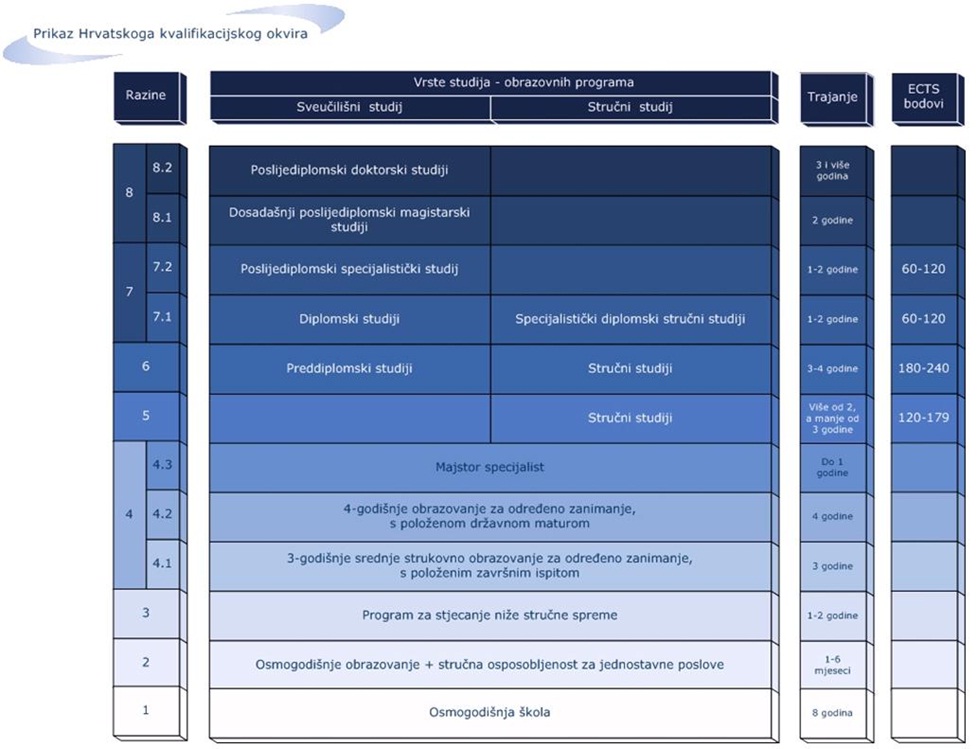- adoption of a system of easily recognizable and comparable levels of education,
- adoption of a system of higher education divided into three cycles,
- introduction of the European credit transfer system,
- promoting the mobility of students and teachers,
- increasing the quality of higher education,
- promoting the European dimension in higher education,
- adoption of a system of easily recognizable and comparable levels of education.
Along with joining the Bologna Process, the Education System Development Plan was devised for the period 2005-2010 to determine objectives (to establish a quality assurance system in the higher education system of the Republic of Croatia until 2006; to reduce the drop-out rate of students and to lower duration of studying until 2010) and priorities in higher education (to improve quality and efficiency of education).
The first step in the reform of higher education in the Republic of Croatia was made in 2005 by harmonizing undergraduate, graduate and professional studies according to the Bologna principles, thus enrolling the first generation of Bologna students that year. In the period from 2005-2009, postgraduate studies were also reformed. In that period, 30 higher education institutions were founded, mostly private and public polytechnics as well as the first private universities, all in accordance with the strategic focus of the Republic of Croatia on polycentric development of higher education.
The European Higher Education Area exhibited the need to standardize and define general conditions for quality higher education, so it was necessary to standardize the levels of acquired qualifications. Thus, the European qualifications framework (EQF) prescribes 8 levels of education, from compulsory elementary education (1st level) to postgraduate education (8th level). In addition to EQF, most of the countries in the European Higher Education Area developed their own qualification frameworks (National qualifications framework – NQF), thus creating their own scale of achieved levels of education. Compliance with the European qualifications framework facilitates the recognition of acquired levels of education within the European area.
Development of Croatian Qualifications Framework (CROQF) started in 2006, aiming to define the entire system of qualifications at all educational levels in the Republic of Croatia through qualification standards based on learning outcomes that correspond with requirements of the labor market, with individual needs and with overall social demands (Figure 1).
CROQF is devised with the aim of connecting the levels of qualifications acquired in the Republic of Croatia with the EQF levels and the Qualifications Frameworks in the European Higher Education Area (QF-EHEA). The Croatian Qualifications Framework Act was adopted in February 2013.

